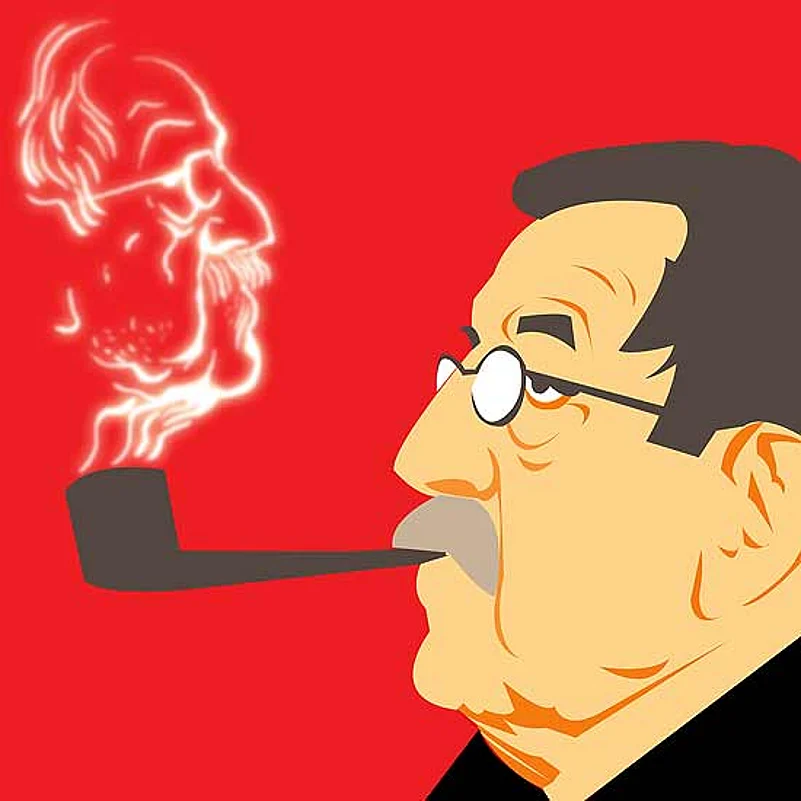Over the years, taboos, like everything else, get rusted. Germany couldn’t raise its head for shame after the Holocaust. Anti-Semitism was the worst obscenity one could fling at someone. To speak against Israel was equivalent to speaking against Jews. Now close to seventy years have passed and Israel, through Ariel Sharon and others of his ilk, has done itself no favours by its aggression against Lebanon, Syria, Iraq and Palestine. What it did in Gaza in 2009 was particularly embarrassing for long-time sympathisers. Small provocations were given devastating ripostes. Gunter Grass, German writer and poet, decided to break the taboo and shuffle off the coils of this historic guilt. It was not a very wise political thing to do for Grass because he had the snakeskin of his own Waffen SS past to slough off. He was just 17 then, and he had the guts to reveal this to an unsuspecting world six years ago in his autobiography, Peeling the Onion. But the SS tag is usually for life.
Grass’s poem What Must be Said, published in German daily Suddeutsche Zeitung, talks of a nuclear armed Israel endangering “the already fragile world peace”. He questions his own long silence on a threat from “war games” which would leave survivors as “footnotes”. “It is the alleged right to first strike/ that could annihilate the Iranian people,/ subjugated by a loud mouth” (read President Ahmadinejad.) There’s no evidence that Iran is going in for an atomic bomb, he says. (Now, how would Grass know? Why is he dabbling in things he can’t possibly be cognizant of? But that’s not the point). And if that’s not hard-hitting enough, he brackets “Israeli nuclear potential” with “Iranian nuclear sites”. Both are “beyond control, because they are not accessible to inspection”. And of course he opposes Germany giving nuclear submarines to Israel which could carry “all-destroying warheads”.
As a poem it is not bad, it’s awful. I agree with the Israeli historian Tom Segev, who thought the lyric “rather pathetic”. But how can one object to it as a political or polemical tract? You have views and you put them down on paper. If you don’t want your subs to be given to Israel, you have every right to say so. That doesn’t make you anti-Semitic. That it has set off a virtual maelstrom in Israel says more about Israel and ‘Grassologists’ than about Grass. Israeli PM Benjamin Netanyahu attacked the “shameful moral equivalence between Israel and Iran”. Israel, absurdly, called Grass anti-Semite and unleashed a torrent of abuse. This is almost reminiscent of attacks on Salman Rushdie. German papers like Bild, dealing if you please with ‘topless models’, have called Grass “completely nuts”. (Now why don’t such papers stick to brassieres?) Iran, of course, is jubilant at Grass’s “deadly lyrical strike”.
Grass has caused as much chaos as his tin drummer Oscar Matzerath does in Danzig (now Gadansk in Poland) at times. When the Nazi soldiers came marching Oscar’s “massive pounding on taut calfskin mingled with the trumpets” disrupts the march. After that, “It was pure chaos, and the trumpets blew Sodom and Gomorrah”. The Tin Drum was a defining novel about the Nazi years. Its overriding metaphor, with Oscar in a mental asylum confessing to a murder he did not commit, held us spellbound. Oscar refuses to grow—a symbolic nexus of adulthood with loss of innocence. His shriek is glass shattering; he embodies the Nazis’ “the night of broken glass”. Allegory and myth are subtly woven into the narrative. The trouble is after one great novel, most writers can’t sustain the brilliance. Dostoyevsky and Tolstoy could.
Gunter Grass has disappointed after The Tin Drum. For instance I waded through his My Century, a collection of hundred stories “celebrating” the twentieth century and couldn’t find one appealing piece. I have a distant inconsequential personal anecdote about the great man. After his stay in Calcutta, and the nasty piece he wrote on his time spent in the city, he was confronted on TV with my poem To Writers Abroad, a sarcastic piece advising foreign writers how to bad-mouth India! Now, Grass may have lost his writing mojo, and may not be a grateful guest, but that doesn’t mean Israel can ban his travel, and declare him persona non-grata. Grass should be allowed to beat his tin drum as loud as he wants.























